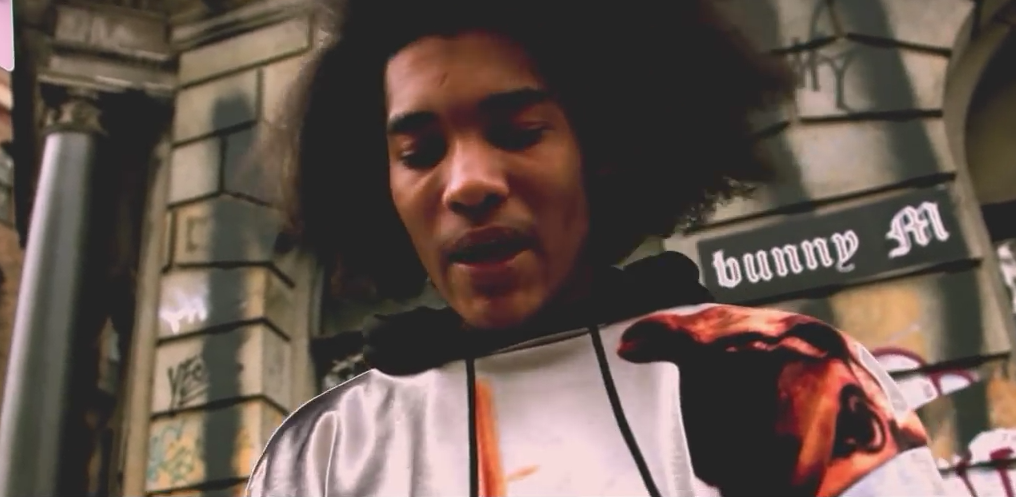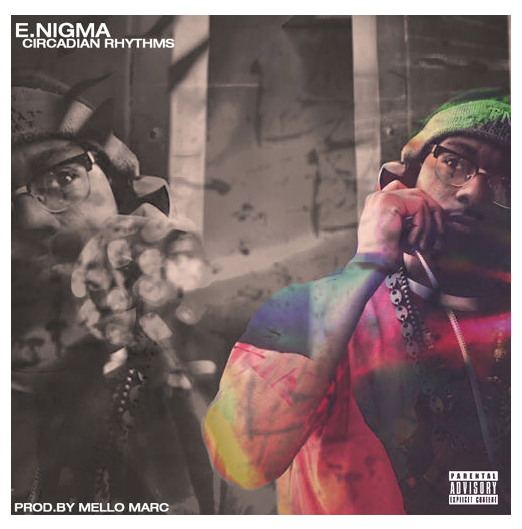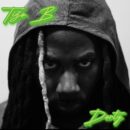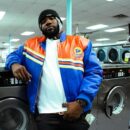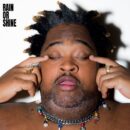Over the years we have sat down with many of the Rhymesayers acts from Co-Founder Sean Daley to Artist Manager/Do-It-All J Bird. This weekend would be another of one of the most talented record company rosters in the business. Grieves hails for the Pacific Northwest, more specifically Seattle. Calling into Upcoming Hip Hop while working on renovating his house, this 'Together/Apart' artist has always had an upbeat personality, even when his music doesn’t. First meeting him at one of the first show I ever covered by myself, Prof Outdoors 3, he was nothing but smiles and it was only fitting that he started off this interview putting one on my face.
UHH: Alright, so off the bat, my names Isaac, I'm here with upcoming hip-hop, and if you wanna tell our fans who you are and what you represent.
Grieves: Shit man, I am Grieves. I am your mama's boyfriend, aka Little Stepdad [which] is what they call me in the hood. I don't know, I'm a musician on Rhymesayers Entertainment. Maybe you've heard of me, maybe you haven't. I've been doing this for well over a decade at this point. I think I'm about to celebrate my second record's ten-year anniversary, which is crazy.
Isaac: Yeah, that's ... I always see you and when I see you, I'm sure you get this a lot but when you're like, "Yeah, I'm on Rhymesayers for ten years." And I go, man, ten years. It doesn't seem like you're that old. Even with Slug and those guys, because at the time when I was growing up, like when I really first started getting into him I was 17, 18 years old, so I kind of always think of them as the way 17, 18-year-old me did.
Grieves: Yeah, and it's kind of interesting because I feel like it stayed that way more or less. You know, you go to an Atmosphere show or something like that and he's somehow been able to maintain that base still
10 years a long time to be maintaining a base, even longer with Atmosphere and both continue to sell out shows, tours and expand their fanbase, but when I think back 10 years ago, I was much different musically and this was something me and Grieves shared.

Isaac: So, kind of the first thing I want to get into with you is ... because hip-hop wasn't really your first musical aspiration, right? In your early years you were in a couple punk bands, right?
Grieves: Yeah, I mean as a kid, but at that point aren't we all? You know ... a musical experimenting youth, because we define ourselves I feel like, especially as kids we define our identity by the music that we listen to quite a bit, when we're that age. You know, who we hang out with, how we dress, how we act, how we talk, music plays a pivotal role in that. When I was a kid that was just kinda my shit. I mean, I'd always had music in my life, I grew up with instruments around, my grandfather was an amazing pianist. My dad had guitars laying around and records up the asshole to just listen to. So, music was always a part of my life, and I was raised on multiple genres and all that stuff. But as a kid, yeah, shit I was in some stupid ass little punk bands and stuff like that.
Isaac: No, I feel you. That was the same for me. My family was never [super into music] but definitely, when I was a kid I was in a couple of punk bands. I couldn't even play the guitar, but I managed to put together, what is that Brain Stew by Green Day, we managed to do a [poor] cover of that.
Grieves: Well that was the beauty of punk rock when you were that age. You just learn four power chords and you just trudge it out and talk about, you know, you're into fucking garage, talk about some bullshit you don't understand. It was good.
Last month I was fortunate to indulge in my nostalgia and cover the last Warped tour ever. In a few interviews we conducted it was built around the question of “What's So Hip Hop about punk?” and seeing as Grieves had a punk background I thought it would be interesting to flip the question.
Isaac: I mean, I just sat down with Reel Big Fish and we were kind of talking about what in ska is relatable to hip-hop. So, with you being in a punk band I figured I'd go the opposite way with this question and say what's so punk about hip-hop?
Grieves: Well I mean, shit, I think music is, all genres are a form of expression, but I think punk and hip-hop have leaned a little bit more towards the rebellious side of things. It's a lot more political, it's in the moment, and it's not for everybody, you know. It's an exciting, fast-paced, aggressive honest music.
Isaac: Yeah, I definitely get that with punk. I've always been kind of driven to punk and it kind of made sense when I started listening to hip-hop. I was first getting into college when I started listening to hip-hop and it just made sense to me as a counterculture, as something I've always been into, I've been into skateboarding forever, I've been into a lot of these counterculture things and I just saw so much similarity with it.
Grieves: Yeah, I mean I got straight into gangster rap from punk rock, because I was like, oh my god, almost the same message. Different social scenarios but like, same message, same energy. I don't know, at that age it was just like fuck this, and fuck you. I hadn't been hearing it like that before either. When I heard a West Side Connection album or the NWA record, I was like, what the fuck? When I heard Dru Down, Pimp of the Year, I'd never heard anybody talk like that. That was like, that was crazy. And then, you know, following that I found Wu Tang and shit like that. I didn't know what the fuck they were saying. So, I was so intrigued because I was like, now I have to learn this, now I have to learn all about this. This is like learning a new language.
It was interesting hearing his perspective on hearing hip-hop because for me it was similar. Having grown up in a country town outside of Green Bay, WI, hip-hop wasn't prevalent, and I spent most of my youth listening to punk and metal until I went to college and heard Tech n9ne. Tech n9ne had such a unique sound but his fast-paced choppy delivery was similar to metal, but also having a heavy influence from Rock music, specifically The Doors, Tech tackles his albums in a way that is similar to Grieves.
Isaac: I wanted to talk about this line from I think it was HHK Music. They did an interview with you about a year ago or so, but what you said was, "I don't really make singles, I make records." I think this is an important thing, I kinda wanted to get into your process of what you would consider an album, what you consider a record versus what nowadays a lot of people, I think they're calling it records but they're really making eps or mixtapes or things like that.
Grieves: Yeah, or they're releasing a series of singles and then putting them all together and then charging you twice for them you know. I can't fight the tide, right? Eventually, I'm gonna have to give in to this way, but like, I got into making music because I love records. I love the cohesive journey of a record, you know? I wanna feel all the emotions of that artist throughout that record and I wanna go along with it. It's not a moment of coolness for me. I get it, that's the way that people are palating music now, and I cannot change that. I'm not saying that I want to or things should be different because I'm not gonna be one of those old dudes, but I have a skillset that I've been building over the past damn near 20 years at this point, and it doesn't include me putting out every song I release on the internet the second I make it, you know? I think that there's a filter and a process to art. Like right now, I haven't done anything in a while, we're about to hit the yearlong mark next week [for] running wild, and we've released a few singles from there which were just leftover songs from the record. You know, we knew that we were always gonna deal with that and stuff like that. But people will blow up my phone and be like, you know, on the internet and shit, be like, "Well just put out one of the songs that you've been makin”
Recently it has felt like a world of mixtapes and as someone who loves buying full albums and listening to them front to back on a car ride if your album just has a string of singles and then filler tracks I just can't bring myself to buy it. I realize that soon (Best Buy already got rid of it) CDs will be a thing of the past but how I take in an album digitally hopefully won't be hampered. Artists like Ces Cru or Kendrick Lamar tend to have a balance and a well thought out concept that goes into it. For Grieves, I think that the influence of not just the type of music he listened to but the way that he took it in influenced how he conceptually visualizes a project.
Isaac: I also come from a CD buying time. I still buy CDs.
Grieves: Fuck yeah. Me too.
Isaac: Yeah, so that's just my mentality is if I'm going to listen to something I'm going to listen to the whole way through. There's probably going to be tracks I like more than others, but I want something I can listen to the entire project.
Grieves: Well, you know, like that's the cool thing about a record too is you might listen to it and you being a certain mood, so you're like, "Oh, I'm not feeling this song," but you own that record now, and that's a piece of art that you have. Maybe a couple months later down the line you're like, "I want to listen to this record again," and you're like, "Whoa, I'm really feeling this song that I wasn't feeling before, because now I'm going through this or now I'm feeling like this," or you know, it's night time now and I'm just like feeling these vibes.
While many artists nowadays talk more about the vibes of a single, I think that you can continue to carry on a vibe throughout an album and that is what Grieves managed to do on his latest project; however, the vibe on this project was a little different than some of his previous works.
Isaac: Getting into your latest record with Running Wild, I follow Mr. Peter Parker pretty intently being from the Twin Cities, and you kind of describe this record as not as emotionally devastating as some of your past ones. I want to know if there's a different mentality that goes into a fun, upbeat record versus putting something that's very super personal to you.
Grieves: Yeah. It's a different space, you know? It doesn't take a different energy for me, because I've been making songs like this. It's just I've caught a lot of notoriety and success, and I've gotten in my own head about the more emotional stuff, the stuff that was all over Together Apart and the woe is me kind of boohooey songs that were very important in my life and very true to what I was going through, but at the same time, I don't want to make those songs if I'm not feeling that way.
Isaac: Right. People don't always understand that when you are an artist who writes about real-world experience that it's not always depressing and devastating, even if that is the what the fan is looking for in that particular time.
Grieves: Especially with that record leading up to that record I found that people kind of expect it from you regardless of how you feel, and I wanted to change that narrative, like you don't get to decide the art I make. I love you and I appreciate you for supporting me, but you do not get to decide the music that I make or the person that I am. If you followed me on social media, you know damn well that I'm not sitting around listening to Elliot Smith songs all damn day long. I fucking party, bro. I like to get in here, but you know, the second I bring that into my music it comes across as insincere, because my music doesn't really come from a place like that. I'm not out here making party songs and shit like that, but when I want to let my personality shine on a record, I feel like people will all the sudden take a step back and be like, "Oh shit. He's trying to do something else."
A familiar sentiment, the struggle to show something knew to an underground audience. We would talk a little further about this issue when considering a song like RX that, while tackling some difficult personal issues had a sonic feel of something a little more mainstream/trap style.
Isaac: Yeah, and getting into something like that, because I know with a song like 'RX', I know it didn't really have the reaction that you were looking for.
Grieves: No, it got the reaction I knew it was going to get. We kind of had hopes that people wouldn't be so fucking one minded, but it's a little hard because of the stigma that comes with the label I'm on, the people I run with, and people draw this line between modern music and this backpack fucking spray can rattling break dancing pop shit. A lot of the people commenting on that actually were not around for that era. I don't want to talk about underground music with a 16-year-old kid. Like, because to me underground is nothing but a tax bracket. Whether or not I decided to use modern sounds in my production does not mean that I'm fucking Drake, like someone was like, "Oh, he's trying to sound like Drake." The fuck? I've probably heard six Drake songs in my whole life. I don't know how to sound like Drake, but I really do appreciate the Sonics of this new age of music a lot.
Being someone that's music selection even within hip-hop has a very strange mix, this idea hit home for me. I can't tell you how many people have told me this track I like or this artist I listen to isn't talented, isn't hip-hop or is a 'bad mark on my critique ability.' I am a little different than Grieves in that I don't have 20 plus years of hip-hop under my belt, but I share the sentiment of not wanting to discuss hip hop with certain people sometimes because they have this 'my sound is the right one' attitude. Grieves went on to mention that the reason he enjoys some of the new school music is that, coming from a music background and audio engineering specifically, he has an ear for how these tracks, 'even the ignorant ones,' sound. One thing that I have always found interesting is the underground heads belief that some of these backpack rappers could destroy these Metro Boomin' or London on Tha Track beats, but when someone like Grieves attempts it, with a conscioius message, its seen as inauthentic or trying to be mainstream, but to me this song was one of his most vulnerable.

Isaac: So, I mean, I hear like Juice World is one of the new artists that I've really gravitated towards, but his song, 'Lucid Dreams', it's one of those where he's talking kind of about sleep paralysis, a little bit about depression, and heartache. It's done in a way where it has that new school sound, but there's enough substance and relatability to me, like with the mental health issues I've gone through and the sleep paralysis thing that when somebody tells me, "Oh yeah, this is just another mumble rapper," you go, "Well then you're not listening to it. You're just hearing this kind of vibe."
Grieves: That's a big problem with 'RX'. People would hear it come in and they would hear those fast tracks. Then, they'd be like, "Nope," and be like, "I miss the old Grieves," and you're like, "This song is about panic attacks." It's probably the most honest I've ever fucking been about myself in a song, but you just wrote me off because you heard something uncomfortable. It's supposed to be uncomfortable because it's a song about fucking panic attacks. I want it to be uncomfortable.
Isaac: That song, I mean, for me, that's one of my favorite songs of yours, and it's because of the content of it. There's actually a handful of lines in it, but the one that really stuck out to me is, “I can feel it in my chest like everyone is watching, and I don't think I can stop it,” because that reminds me of my general anxiety disorder, and when I'm at work and I feel a panic attack coming on, that is the exact feeling I get. I get that I think everybody has been judging me, I'm freaking out, I don't think I'm going to be able to stop it because I'm starting to freak out. So, to me this song really made a lot of sense to me, and it really felt real.
Grieves: Well, it's because it was real, man. Like I was going through that myself, and I was traveling a lot through that record, and I started having this feeling that I'd never experienced before. I would get to customs and all the sudden I would feel guilty, and they would be like, you know, "Where's this? Where's that. What did you do? Where are you going?" I would just feel guilty and panicky and I would stop talking. I literally could not say a word, and I felt like afraid. I was like, "What the fuck is going on with me?" So, I came back, I tried to be tough, I wrote it off for a while, and it kept happening and kept happening. Then, I was in LA doing a series of publishing meetings trying to get a publishing deal, and I'm in Warner Chapel and I just fucking meltdown. Like dude's looking at me, I can't look at him, I wish that he would stop fucking looking at me, I'm freaking the fuck out, my heart is pounding out of my chest, there's nothing I can do, my face is twitching, everyone's fucking looking at me, I'm in this huge fucking meeting, and I lose my shit and I tell the dude to stop looking at me, I get up, I fucking leave, I go to the bathroom, I punch a fucking massive hole in the fucking urinal in this fancy fucking office. Then, I get lost and I can't find my way out, and I started freaking out. Have this full on meltdown in the bathroom, and it felt like I was just in a car crash or some sit, and the adrenaline was fucking kicking, and I can't find my way out of the office, so I just go back, and I sit down and I was like, "I think I'm having a panic attack. I can't find my way out of here, and let's just get this over with, but I'm not talking. My managers are in the room with me. They're doing the rest of this shit. I'm fucking done."
There are often times in interviews where I am speechless because I just learned something new or was explained something I hadn't really considered previously, but this time I was left speechless because I knew that exact feeling and it reminded me that even those living a life we might be jealous of have a human side of them. As he explained this panic attack he had at an important meeting I couldn't help but be brought back to the many times this has plagued my work, whether it was my office job or missing a show I had been looking forward to, and this realness to his song is what makes it so frustrating when a 'fan' can just tear something down with little actual critiquing being down.
Grieves: It's almost like these people do it to make themselves validated. Some of these people comment on things. When I see it, it's like, whoa, you didn't even listen to the song. You're just saying it to sound like you know more about hip-hop than you do. Let's not put our hip-hop chops up here. I've been doing this for a really long time and I have the fucking right to do what I want creatively. And that's what I've always done, and if that's the thing that fans believe that I owe them a certain kind of thing because we've always had this emotional connection, I guess I can understand that, but at the same time, that connection's so one-sided then. Why can't I do what I need to do, opposed to me just doing what you want me to do?
I felt like this was one of the most important lines of this interview in that what artists do creatively is for themselves. Now you can make a case against it in the mainstream in that it’s a business and done for monetary reasons, but those monetary reasons are still for self. If others fuck with their sound that is great, but when a true artist steps into the booth they aren't thinking about 'how many albums can I sell?' or 'will my fans fuck with this track?' I think it was Murs in a recent interview with us that said, 'Da Vinci wasn't wondering how many people were gonna hang this on their walls when he painted the Mona Lisa,' and it’s a viewpoint of a true artists that is 'I hope you like my music, but I made it from and for myself.' Fans are entitled to their opinions as their support often allows artist to continue making music, however, berating an artist because their music doesn't fit your own style is like complaining that someone like's pineapple on pizza. This mentality is what caused Grieves to leave a social media group.
Grieves: Oh yeah, I got the fuck off that thing. That's a pretty prime example over there. Those people primarily hate everything. And it's really frustrating because it's like man, it didn't mean what it needs to mean to you, but I feel like that page was not for that, it wasn't for you to prove how fucking hip hop you are. Cause you heard a Aesop Rock song and all of a sudden you joined this group and now you're the fuckin' man.
Isaac: Right, and that was always frustrating. What we'd always try to provide there was an outlet for people to discuss the music that they liked, and if you didn't like it, then you didn't like it. But at least have a discussion about it, not just ... we ran into too many problems with people just ... they wouldn't even listen to the song, they'd just be like "Yeah, it's another mumble rap song." Or "Yeah, it's another this song."
Grieves: All the mumble rap memes. All that shit. Then to me, the problem was like ... I'm just gonna say it cause I don't give a fuck, whack ass rappers, just fuckin' whack ass rappers, talkin' like they're the tastemakers. In my community, you don't get to talk like that unless you got chops. The internet and things like that allows these fucking whack ass rappers to act like they're the ones who get to decide what's dope and not. You get your fucking card pulled around ... how I came up, you didn't get to do that. If you wanted to comment on somebody like these motherfuckers were doing on there, you gotta be doper, and you gotta be ready to put that on the line.
Isaac: Right, and I've said that a lot. They'll be like, I brought up this diss track where this guy talks about them, and this is my proof of how bad they are. I'm like, yeah, but that guy went and made a whole diss track about it and went into detail on it. You just said what he said, and not even really, you just copied him.
Grieves: Yeah, you just on the internet bitchin' to a bunch of people that somehow have let you do it. You've found that place and you hold onto it because you feel like you're dope there. And that's cool, I guess, but also you're fuckin' super whack. It was getting really hard for me to be anonymous. Especially cause walking people comment on my album ain't shit, or you'd see some kid just shit on my record, and then he'd post my song and be like "Aye, anybody looking for some beats?" And you're like, what the fuck? Are you kidding me right now?
Artists have to have thick skin and allow their work to be critiqued; however, when that critique comes from someone without the knowledge or ability themselves it is as inauthentic as the artists they are claiming to be. This mentality is plaguing art because while some artists may be deserving of harsh critiques, the truth is opinions only belong to those speaking on them. If someone finds joy or meaning in music, who are you to tell them that's not a real emotion they are feeling? Grieves held nothing back, but what he ended on was the reality of not only these individuals but the internet trolling generation in general.
Grieves: Some of these cats just do it because it poses the appearance that they're dope. Like oh, I have these opinions, so I'm dope.
Isaac: Yeah, it's fun to shit on mumble rap, so if I do it, more people will like me.
Grieves: But I'm not physically capable of making dope music myself, I just feel like y'all should listen to me and my opinions on what is dope, even though I make the most whack shit.
One important thing to note from this exchange is that it isn't everyone. Fans are incredibly supportive and others critique in a manner that truly allows artists to improve their work, but if you ever wondered what an artist feels about low-level critics slinging mud listen to 'Fragile' by Tech n9ne. As I said, most fans are of the supportive nature and for that reason, I always like to reach out to the fans to find out what they have been wondering about their favorite artists.
Isaac: This one comes from Brad in North Carolina, and it kind of fits into what we were talking about earlier. He said, "It seems like things have been going pretty good the past few years for you, is it hard to write that kind of signature, heartfelt, darker songs when you're in such a good mood? How do you keep tapping into that energy?"
Grieves: I don't. Music is very personal for me, so if I'm not feeling that way, I'm not gonna do that. That's kind of what I was saying. I'm not gonna make another On the Rocks because On the Rocks was successful. That's not what fuckin' happens. I'm not gonna purposely make brooding, sad music. I was never purposely picking sad music.. So yes, I do find it hard to do it, but I'm not doing it.
Isaac: Yeah, you're not Taylor Swift, you're not looking for a heartache just to make a single.
Grieves: No. I'm trying to live my life. I'm trying to, fuck it, I'm trying to lose my career over being happy if that's what it takes. Then people are like "Well then fuck it, I don't wanna listen to him unless he's miserable." Well then fuck y'all.
Isaac: I felt the same way when people brought up that latest Atmosphere, the Fishing Blues album, and how it was a more positive, adult thing. "Ahh, it didn't really resonate with me." I'm like, dude he's just happy. He's got kids, he's fuckin' living life, just let him be.
Grieves: He's doing what he always did, he's just telling you his shit. The only difference now is you don't relate to it, and that's fine. The argument to be made there is like, well maybe he should, or it's a business, I get it.
This interview was probably my most relatable for many reasons, from the trolls to the anxiety-driven art to fact that he was multi-tasking in the interview and painting his house, Grieves truly allowed me to see a small portion of myself in an artist that I have respected for the past few years since coming across his music. The only thing left was to look to the future.
Isaac: I just wanted to give you a chance here at the end of this video to shout out your social media, let everybody know what you've got coming up, anything that's-
Grieves: I'm on the internet. Come find me. Google me, motherfucker. Google me, bitch. Let's see, I got a tour coming up down the West Coast, so if you live on the West Coast and you one of those people that's been like, "Come to the West Coast, you never come to the West Coast!" You better get your ass online and buy some motherfuckin' tickets. I got a show at Red Rocks coming up at the end of this month, August 31. If you live in Colorado and you don't have your tickets, too late motherfucker, it's sold out. But if you do live in the Colorado area or you're going out to that show, I'll see you there. It's gonna be a good fuckin' time, I've got my goons with me, I'm excited.
Over the years, Upcoming Hip Hop has worked closely with Rhymesayers Entertainment and have always been appreciative of the artists sitting down with us. Grieves offered us a deep insight into the world of his art and what goes into everything from the writing process to the reaction process. If you have yet to check him out or his live shows it is definitely worth your time. From the first time I saw him at Prof Outdoors 3, where I not only got to see his positive live performance but also a chance to see his genuine personality backstage that made me appreciate his music that much more, and this interview reinforced that.
Connect with Grieves
www.grievesmusic.com
Facebook.com/Grievesmusic
Twitter.com/grievesmusic
Instagram.com/grieves


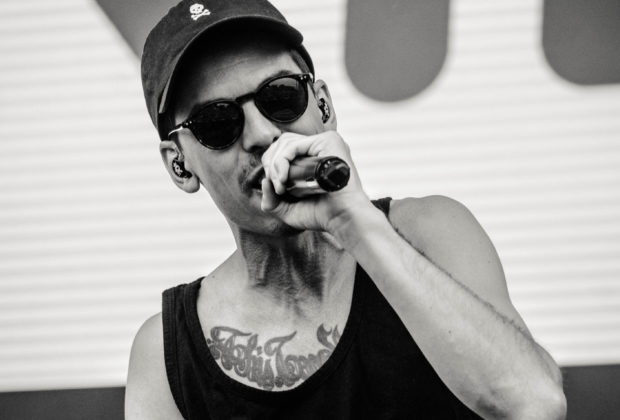
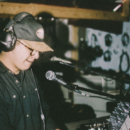
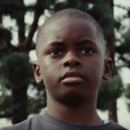
![[Audio] Tone Eyeful - "Gotta Get It"](http://upcominghiphop.net/wp-content/uploads/2016/08/gotta-350x320.png)
![[Audio] "Vanity" - D. Green ft. Erin Whitcomb](http://upcominghiphop.net/wp-content/uploads/2016/04/Screen-Shot-2016-04-18-at-4.36.01-PM.png)
